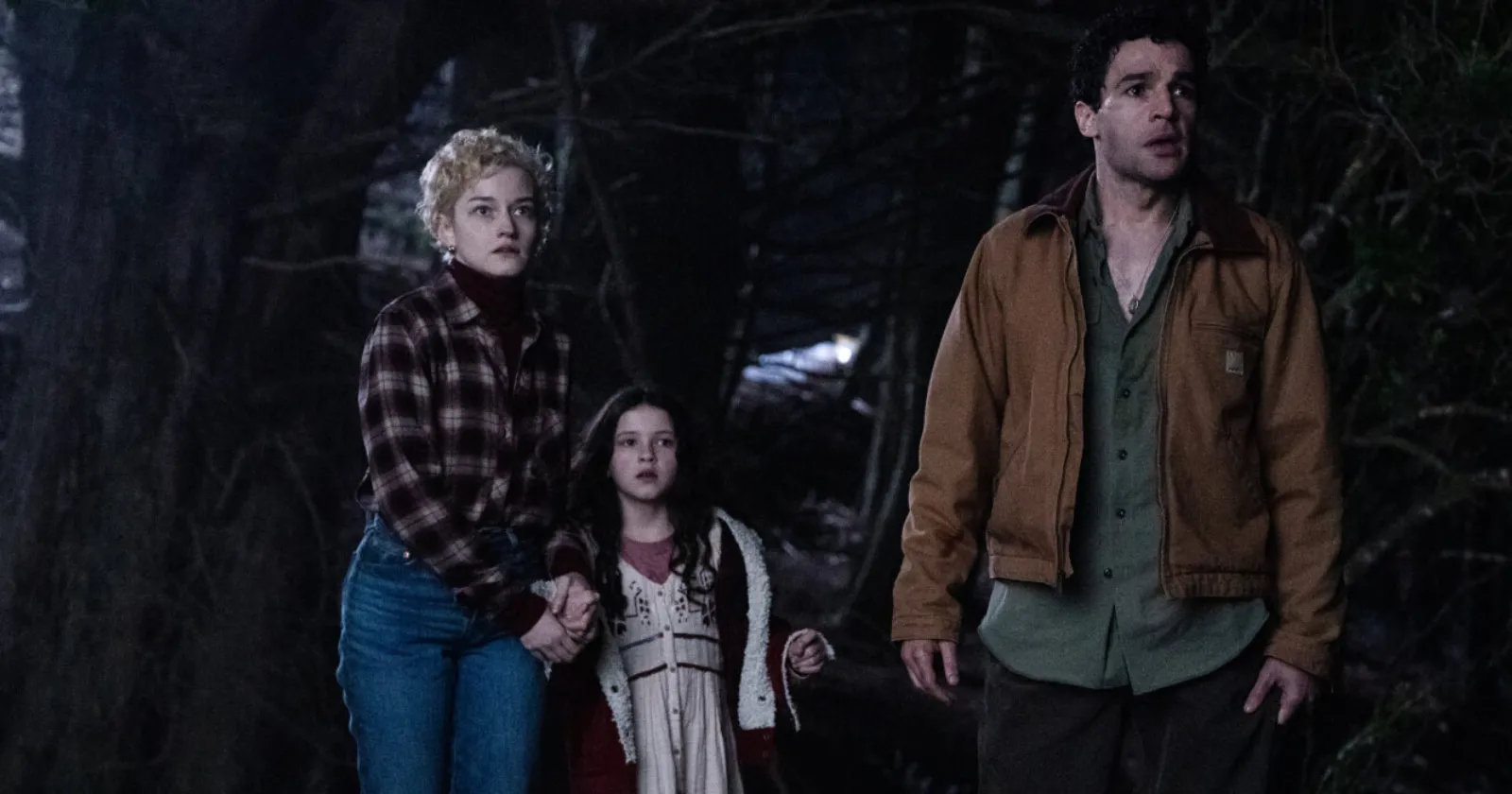Wolf Man is another uneven entry in Universal Pictures’ long-running struggle to make their classic monster IP feel vital again. Leigh Whannell may be one of the more exciting genre filmmakers working today, but this misaligned project is more whimper than howl.

‘Wolf Man’ Movie Review
Wolf Man (2025) marks Leigh Whannell’s return to the director’s chair following the critical and financial success of The Invisible Man (2020), a lean, high-concept thriller that revitalized Universal Pictures’ classic monsters brand during the early days of the pandemic. That film made over $140 million on a modest $7 million budget, reigniting the studio’s long-dormant dreams of a connected Dark Universe. But with Wolf Man, Whannell trades in sleek, tech-heavy horror for a more traditional creature feature—and the results feel like a creative misfire.
Originally announced way back in 2014 as part of Universal’s doomed Dark Universe (which collapsed almost immediately after The Mummy flopped), Wolf Man has gone through multiple iterations before landing on Whannell, with Christopher Abbott and Julia Garner leading a stripped-down version of the tale. Abbott (Sanctuary, Bring Them Down) plays Blake, a man returning to his rural Oregon hometown with his wife Charlotte (Garner, Apartment 7A) and daughter Ginger (Matilda Firth) following his estranged father’s death. Once there, Blake is attacked by a mysterious creature in the woods—possibly the same one he saw as a child. Bitten and infected, he slowly begins to transform, both physically and mentally, into something monstrous.
This is a premise with potential, especially in the hands of a director like Whannell, who has shown sharp instincts in genre filmmaking with Upgrade and The Invisible Man. But where those films leaned on modern anxieties—surveillance, body autonomy, technology—Wolf Man strips away all that thematic richness in favor of minimalist storytelling. There’s very little dialogue, lots of slow transformations, and extended scenes set deep in the woods. And while it may seem like a bold pivot for Whannell, it ends up feeling hollow.
Rather than leaning into the psychological or emotional turmoil of Blake’s transformation, Wolf Man plays it surprisingly safe. The creature horror is slow to arrive and underwhelming when it does, and the family drama at the heart of the film—Blake and Charlotte’s unraveling relationship—never finds traction. Garner is a talented actor, but here she’s relegated to familiar territory: the emotionally burdened wife grappling with a man’s unraveling. It’s a performance we’ve seen before, often in better films.
You can’t help but wonder what Derek Cianfrance—originally attached to direct with Ryan Reynolds set to star—might have done with the material. With films like Blue Valentine and The Place Beyond the Pines, Cianfrance is known for bringing a raw, lived-in sensibility to his stories, and his version of Wolf Man may have leaned more into the emotional and existential horror of transformation. Whannell, by contrast, feels boxed in here, unable to apply his usual bag of kinetic tricks and genre subversions to a story that’s trying to be more grounded, insular, and tragic.
READ MORE MOVIE REVIEWS: Sinners, The Actor, Heart Eyes
Despite a few well-composed shots and fleeting moments of tension, Wolf Man ultimately lacks bite. Its pacing is sluggish, its themes underdeveloped, and its scares surprisingly toothless for a movie about a man turning into a literal monster. For all the effort to reboot these Universal monsters, the studio once again delivers a film that feels stuck in limbo—too moody for the horror crowd, too conventional for arthouse acclaim.
4/10
Wolf Man (2025)
- Cast: Christopher Abbott, Julia Garner, Matilda Firth
- Director: Leigh Whannell
- Genre: Horror, Thriller
- Runtime: 102 minutes
- Rated: R
- Release Date: January 17, 2025
- Movies Like Wolf Man: Night Swim, The Watchers, Speak No Evil, More Movies Like Wolf Man